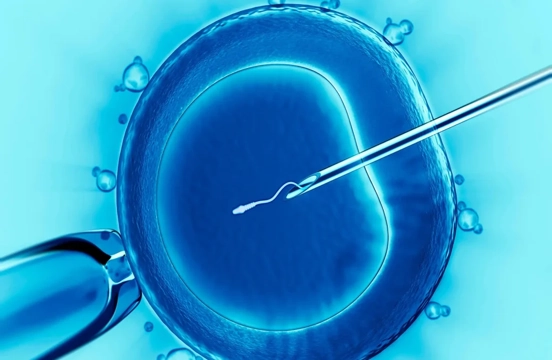IVF Treatment in Turkey
IVF Treatment in Turkey
In vitro fertilization (IVF) is one of the most effective medical solutions for couples who have difficulty conceiving naturally.
The procedure involves collecting eggs from the woman, fertilizing them with sperm in a laboratory, and transferring the resulting embryo into the uterus.
Over the past 15 years, Turkey has achieved world-class standards in IVF treatment, offering advanced technology and high success rates.
With experienced specialists, modern clinics, and affordable costs, Turkey has become one of the most preferred IVF destinations in Europe for couples seeking parenthood.
What Is IVF?
IVF is an assisted reproductive technology used when natural conception is not possible.
During treatment, the woman’s ovaries are stimulated to produce multiple eggs, which are then collected and fertilized with sperm in the lab.
Healthy embryos are later transferred to the uterus to achieve pregnancy.
This method provides an effective solution for both female and male infertility.
Who Is IVF Suitable For?
IVF may be recommended in the following cases:
- Blocked or removed fallopian tubes
- Low sperm count or poor sperm motility
- Ovulation disorders
- Endometriosis (chocolate cyst)
- Advanced maternal age (≥38 years)
- Unexplained infertility
- Recurrent miscarriages or failed pregnancy attempts
Treatment is always personalized according to the couple’s medical background and age.
Stages of IVF Treatment
An IVF cycle typically lasts around 15–20 days and consists of several steps:
- Initial Evaluation and Planning
- Hormone tests and ultrasound to assess ovarian reserve (AMH level)
- Semen analysis for sperm quality
- Individualized treatment protocol is designed for the couple
- Ovarian Stimulation
- The woman receives hormone injections to stimulate the ovaries and produce multiple eggs.
- This phase lasts 8–12 days, with regular ultrasound monitoring.
- Egg Retrieval (OPU)
- Eggs are collected under short anesthesia using a vaginal ultrasound-guided procedure.
- The process is painless and takes about 15–20 minutes.
- On the same day, a sperm sample is collected from the male partner.
- Fertilization
- Eggs and sperm are combined in the laboratory.
- In certain cases, ICSI (Intracytoplasmic Sperm Injection) is performed — injecting a single sperm directly into the egg.
- Embryo Development
- Fertilized eggs (embryos) are cultured for 3–5 days in a controlled incubator.
- The healthiest embryos are then selected for transfer.
- Embryo Transfer
- Embryo transfer is a simple, painless procedure that doesn’t require anesthesia.
- Pregnancy testing is done 10–12 days after transfer — often the most exciting stage of the process.
IVF Success Rates
Success depends on several factors:
Factor | Influence on Success |
Woman’s age | Up to 60% under age 35 |
Egg quality | Higher quality = better fertilization |
Embryo selection | 5th-day (blastocyst) transfers are more successful |
Sperm quality | Motility and morphology are key |
Lifestyle | Smoking, alcohol, and stress reduce success |
Thanks to advanced embryology laboratories, success rates in Turkey range between 55% and 70%, which is higher than most European countries.
Why Choose IVF Treatment in Turkey?
Turkey is among the leading countries in IVF and reproductive medicine.
Key reasons include:
- High success rates with experienced fertility specialists
- Affordable treatment costs — up to 50% lower than in Europe
- State-of-the-art technology (PGT, embryo freezing, microchip sperm selection)
- Fast process — no waiting lists
- Internationally accredited clinics (ISO, JCI certified)
- Confidentiality and patient comfort
These advantages make Turkey a top choice for couples from the UK, Germany, the Middle East, and the Balkans.
Advanced Techniques Used in IVF
- ICSI (Intracytoplasmic Sperm Injection): Fertilization using a single selected sperm
- Blastocyst Transfer: Transferring embryos at the 5th-day stage for higher success
- PGT-A (Preimplantation Genetic Testing): Detecting genetic abnormalities before transfer
- Embryo Freezing: Preserving embryos for future use
- Time-Lapse Incubator: Continuous monitoring to select the best-quality embryo
These innovations significantly increase pregnancy and live birth rates.
Pre-Treatment Recommendations
- Stop smoking and alcohol at least one month before treatment
- Maintain a balanced diet and regular sleep pattern
- Keep BMI between 19–25 for optimal fertility
- Take folic acid and prenatal vitamins
- Manage stress — emotional support can improve outcomes
Possible Side Effects
IVF is generally safe; side effects are mild and temporary:
- Bloating, mild abdominal discomfort
- Emotional sensitivity
- Rarely, ovarian hyperstimulation (OHSS)
- Light spotting after procedures
Experienced centers keep these effects to a minimum.
After the Transfer
Following embryo transfer:
- A pregnancy test is done 10–12 days later
- Light rest is recommended, but normal daily activities can continue
- Do not stop medications unless advised by your doctor
- If the first attempt fails, a second cycle often has a higher success rate
Advantages of IVF Centers in Turkey
- Highly qualified gynecologists and embryologists
- Advanced laboratory technology
- Multilingual patient coordinators
- Personalized treatment and fast appointments
- Patient privacy and ethical standards
Frequently Asked Questions (FAQ)
- Is IVF treatment painful?
No. Egg collection is done under anesthesia, and embryo transfer is painless.
- What is the success rate?
It can reach up to 60% in women under 35. Age and egg quality affect outcomes.
- Is pregnancy with frozen embryos possible?
Yes. Frozen embryo transfers have success rates equal to or even higher than fresh cycles.
- How many IVF attempts can be done?
There is no strict limit, but success usually increases within 3–4 attempts.
- Is IVF in Turkey safe?
Yes. Clinics operate under international standards with highly experienced doctors.
- How long does IVF treatment take?
The entire process typically lasts about 3 weeks.
IVF treatment is a scientifically proven method that turns the dream of parenthood into reality.
Turkey, with its advanced technology, skilled specialists, and high success rates,
is now recognized as a global leader in safe, affordable fertility treatment.
With the right clinic and medical guidance, every couple can begin a hopeful new chapter toward becoming parents.
